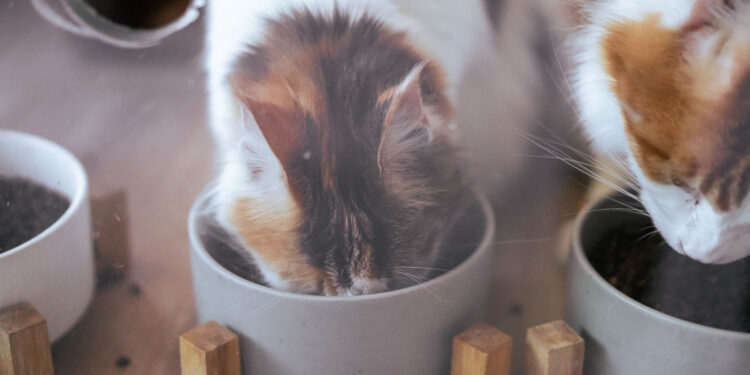If you are a new cat owner, you are probably wondering what to feed your feline to keep it safe and in good health. Cats are natural carnivores, so they mainly need to eat meat and animal proteins.
However, lots of things humans eat can be good for cats, as well, so you will have lots of options. Still, some ingredients are harmful to cats and you must avoid them.
Cat Food and Cat Supplements
Both dry and wet cat food has their benefits, so you can choose what to give to your pet. Wet cat food contains chunks of meat, or meaty pieces dipped in jelly. This type of food contains lots of water so it’s good for keeping your cat hydrated.
Dry food usually contains meaty kibble or cat biscuits and is equally good and nutritious. Dry cat food can also clean cats’ teeth and maintain hygiene in their mouths.
Besides those, there are many cat treats on the market that can “spice up” your kitty’s daily feeding routine. Cat treats are similar to kibble food, but are supposed to be tastier and different from regular dry food. However, feeding your cat mostly with treats won’t provide a balanced and complete diet.
Lots of human food and meat can also be considered a treat for cats. If you have some cooked chicken, turkey, beef, tuna, or other leftover meat at home, you can use it to make a delicious treat for your feline.
In addition to a nutritious diet, cats may benefit from taking supplements that can enhance their health and well-being. Probiotics for cats can help support the digestive system and the immune system by providing beneficial bacteria that can balance the gut flora and prevent infections.
Petz Park hip and joint supplements can help reduce inflammation and pain in older cats or cats with arthritis or other joint issues. They usually contain ingredients such as glucosamine, chondroitin, and omega-3 fatty acids that can improve the cartilage and the lubrication of the joints.
How Much Should They Eat?
The amount of food you are feeding your cat should depend on their size and age, but on average, the ideal routine would be to give them five small portions per day. Cats should eat often, but little, so even if your kitty gives you those pretty eyes, don’t give in and overfeed it.
Obesity is common in cats, especially for those that live only indoors, so take care of what and how you feed your pet. If you’re not sure if you are doing it right, always check the food packaging for instructions, or contact a veterinarian for professional advice.
What Human Food Is Good for Cats?
Feeding your cat with quality cat food is the best choice you can make, however, lots of human food is also good for them and could enrich their diet. This, still, doesn’t mean you can share every meal with your cat.
Here is the list of some ingredients that you can feed to your cat:
Meat
Almost any meat can be good for your cat, but cooked poultry is maybe the best, followed by beef, and fish. Avoid salty and processed meats like ham or salami, as cats can’t take much salt.

Fish
It’s well-known that cats love to eat fish. Most of it is good for them as it contains omega-3 fatty acids that can benefit their health. Fish can be good for cats’ bones and joints, for their brain, kidneys, and eyes.
Don’t forget that the fish you are giving to your cat must be cooked, and carefully cleaned of bones that could otherwise be dangerous for your kitty.
Eggs
Did you know that eggs can also be a part of cats’ diets? Your cat will probably like to snack on boiled eggs sometimes. Eggs are full of protein and amino acids that are good for cats’ health as an occasional treat.
Wholegrains
Whole-grain food also contains protein which makes it suitable for cats. Therefore, brown rice, oats, or couscous can find their place in your cat’s food bowl occasionally. This food isn’t necessary for your cat, but it won’t harm it and may be helpful with digestive problems.
Vegetables and fruits
Most cats don’t like to eat fruit and veggies and will reject them. However, if your cat happens to be interested in tasting some of it, you should let it. Vegetables and fruit contain lots of liquid, vitamins, and fiber, and most of them are harmless to cats.
What Cats Shouldn’t Eat?
If you get used to giving scrapes of your food to your cat, be careful about what ends up in its bowl. There are lots of foods that could be harmful or even toxic to cats like:
- Onions
- Grapes and raisins
- Chocolate
- Anything with caffeine
- Avocado
- Bread dough
- Tomato
- Nuts and fruit seeds
- Milk and dairy products
Conclusion
Cats are not demanding pets, but as a responsible owner, you must learn everything about their diet and their specific condition, age, weight, or any diseases they may have. To be in control of how you feed and generally take care of your loved pet, make sure to visit your vet regularly and get professional counseling.























